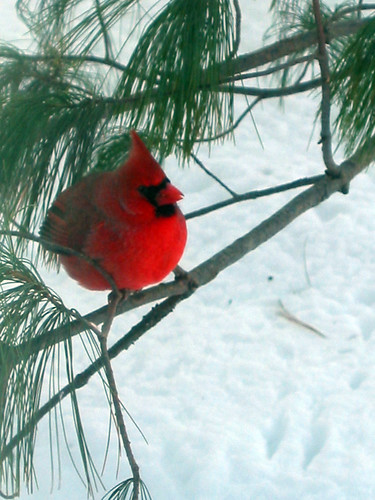In a post this week on his blog, The Book Report, Andrew Piper used the occasion of a question posed by his daughter during Easter service (How did those a man in the choir know all the words to the service?) to reflect on the long history of cultural transmission via the written word:
I said that was a long story. But the short answer was: books. Not in the sense of reading and memorizing, but in the sense of, How do we all know this story 2,000 years after it happened? I’m one of those people who is consistently enthralled by the fact that stories persist.That thought came to mind this morning as I read Francis Spufford's The Child That Books Built: A Life in Reading (2002), a wide-ranging biographical exploration of the role of fiction in Spufford's childhood and mental and emotional development. Early on, he writes, of children's insistence that every word of a familiar story be the same every time,
The invariability of a story is what give it a secure existence. It adds it to the expanding sphere of what is known for sure; and therefore to the dependable world, which is made up at the deepest level, for a small child, of patterns on which it is safe to rely.In one sense, that's the role that a church service (or an origin story, or a particular history, etc.) plays, even for adults: it locks the world in amber, unchanging, so that we can find ways to cope with its actual, ever-changing reality. Part of what makes Tolkien's books (which Spufford discusses as childhood favorites) so affecting is that the real threat to the Shire, to the simple life that Sam so wistfully recalls and Frodo is simultaneously excited and anxious about leaving, is not the evil of Sauron, per se, but the simple arrival of change. The Middle Ages, which we nowadays know on our earth were far from as static as once thought, are in Middle-Earth being forcibly propelled into the modern; even if Frodo and Aragorn and the Fellowship can stave off the worst of the consequences, change, having entered, will accrete. The golden summer is over, passing inexorably into story.
Elsewhere in that chapter is another passage that resonates with Piper's themes. In the process of both telling about a forest near his childhood home and establishing a metaphorical structure for his investigation of stories, Spufford writes about the primeval forest that used to cover Britain:
The botanist Oliver Rackham* called it the "wildwood" as a technical term, after Kenneth Grahame's Wild Wood. I sit in the ghost of the wildwood's Lime Province, a wonderful name, the title for a polity of trees alone. It stretched from sea to sea. Painted people slipped through its shadows, among the other animal species of the wildwood, indistinct in the slatted light. They left no permanent trails. They hunted and gathered, they retreated to basketwork houses where lakes had opened the land for them. Undoubtedly they told stories about the unending thicket whose signs they forever tried to read.The forest was long believed to have stood, nearly unbroken, until well into the Middle Ages--but in recent decades botany and archaeology have placed its clearance much, much farther back. Half of it, Spufford reports, is thought have been cleared by 500 BC. "The significance of these dates," Spufford writes,
is that they put the death of the British wildwood before recorded memory. Memory in the forms of history or chronicle we could be without, and still inherit the shadow of the trees. But the death of the wildwood precedes story too; it happened before the oldest legends that now survive were first told. It is out of legend's reach. For stories to descend from then till now, there has to be a chain of peoples passing along mythology. They garble it. . . . Still, a signal arrives. Stories do not lapse easily into time's white noise because they are not passed on passively. There's a counterchaotic imperative at work. Whenever static threatens to overwhelm them, whenever too much detail becomes meaningless, a teller will reform them in the act of transmission so that once more they make (a kind of contemporary) sense. But the wildwood predates the earliest, obscurest functioning link in the chain. It sends us no signal at all. It was just too long ago. We tell no stories of the great wood from memory in England.Instead, Spufford argues, stories of the primeval forest are the result of the deeper language of myth--they are the dark, wild, unknown places that are necessary to explain chaos and set off order.
Spufford is surely right: the forest, after all, was never--still isn't--wholly gone; it is a concept that is easily extrapolated. But part of me nonetheless resists the idea that nothing of the old stories filtered through, that no trace, however corrupted, lingered through the generations and the conquests and the losses. Again: I expect he has the evidence on his side--mine is a response from the gut, not the mind--but my wish to believe in the enduring chain of story is powerful.
Every time I’m in a setting where something has been repeated for so many years I can’t resist running the thought experiment of whether electronic media will make such durability harder. It’s an old cliché (books stable, electronics volatile), but the point is not that it’s true, but what if it were true, what if we could make it happen? What would it be like to live in a world without such absurdly durable social practices? What would it be like to inhabit a culture where forms and practices only lasted a generation or two? Would it be liberating or incredibly sad? Can there be belief without time?And that brings to mind a set of stories that matter as much to me as any in the world, stories whose language is not set--no perfect repetitions--but whose meaning has been clear for years: the stories my family tells when we are together. My brother and sister and parents and I spin out tales of childhood, to always-fresh laughter, every summer on vacation, and we've been doing it long enough now that my nieces and nephews know some of the stories and their characters. But these stories will not last past them, if they even hold up that long. They're inherently short-lived, narrow-compassed, and no less powerful for that. Mentioning them is at best an oblique response to Piper's question, though I think it probably leads to the answer he'd be likely to arrive at: it's unquestionably sad when the things we care about fade out, the quicker the sadder. It's the nature of things, and I don't pretend to expect anything else. Sticking with the personal: it's not as if my nieces and nephews have any kind of duty to pass on our stories to their children. They'll have stories of their own. But it's sad nonetheless, and to imagine it on the level of a whole culture brings on a vertiginous feeling of fundamental loss.
Since this whole post has been operating with, at best, my usual dilettante's obliqueness, I'll end by turning to a passage from Alain-Fournier's Le Grand Meaulnes (1912):
Between two white posts, at the corner of the wood, Meaulnes found the entrance to an avenue and started down it. After a few steps, he paused, astonished, overcome by a feeling that he could not explain. Though he had been walking with the same tired legs and the icy wind was freezing his lips, at times taking his breath away, none the less an extraordinary feeling of contentment raised his spirits, a feeling of perfect, almost intoxicating tranquillity: the certainty that he had reached his goal and that henceforth only happiness awaited him. This was how, in earlier times, he had felt on the eve of the great summer festivals, when at nightfall fir trees were being set up in the village streets and the window of his bedroom was obscured by their branches.In that passage we bring together our themes: the forest, discovery, story, adventure, memory--and, loss, because Le Grand Meaulnes is shot through with it, glimpsed here only in that vision of the boyhood bedroom window. (I remember, remember--June nights, abed before dark, listening to the cicadas announce that the darkness was slowly slipping amongst the trees, establishing dominion. Day is done.) This is what connects us. This is what keeps us going. This is the mortar of the loving friendship of my brother and sister and my parents and me.


